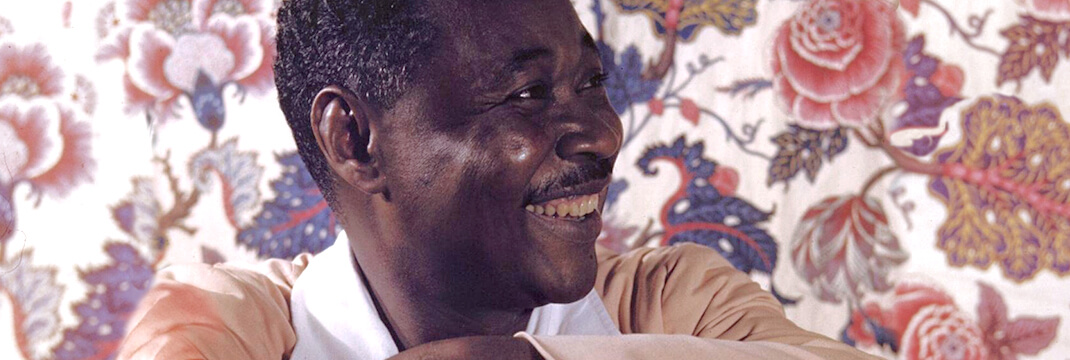
The Harlem Renaissance was the time when the African-American culture was flourishing. For the first time, African-Americans had experienced such a great creative expression in literature, music, and art. In the period after the First World War from the 1920s to the 1930s, this artistic movement fully embraced their cultural identity. During the same historical period, America was experiencing an economic boom, and many African-Americans moved to New York, being attracted by emerging jobs and opportunities for creative development (Hutchinson, 2013). Thus, the part of the city, Harlem, became a center of a new artistic circle, giving the world a completely unique perspective on the African-American culture.
At first, artists were focusing on changes in society and a new African-American identity that was developing. Claude McKay was one of the well-known poets of the Harlem Renaissance, who had created a new identity of the African-American culture. A native Jamaican, Claude McKay came to America to study but soon moved to New York to pursue the career of a journalist and poet. He was one of the most talented and profound artists of the Harlem Renaissance. The cultural insight of this movement is vividly seen throughout his poetry (Wormser, n.d.). Therefore, Claude McKay’s poems will help to reveal the culture of the Harlem Renaissance in this paper.
If McKay’s poetry is a voice of the African-American population of that time, then analyzing his poems enables to understand the message of cultural transformation known as the Harlem Renaissance. For literary interpretation and analysis, the poem entitled “America” and written in 1921 has been chosen. Claude McKay started his poem by using the personification of America. He gave it a human face and attributes stating, “Although she feeds me bread of bitterness” (McKay, 2004). In the very first stanza, McKay portrayed his uneasy feeling about America of that time. On the one hand, this great country gave him opportunities and a chance to earn his bread. However, on the other hand, McKay realized that it was a “bread of bitterness” because all these opportunities required a big struggle for the African-American population. Even though they were liberated and racism would not exist anymore, people still faced it in the American society. The idea of liberation and equality “fed” him and gave more power, but at the same time, “it sinks into his throat her tiger’s tooth” (McKay, 2004). He compared America to a medicine supposed to cure, but instead it seemed to hurt even more. Despite of all the years of struggle and sacrifices that they had been through, society was not ready to accept the Black population as equals. In the next stanza, McKay (2004) said that America was “stealing my breath of life”. He used figurative language, saying that such a cruel attitude of society took away his joy of life and happiness.
The poet realized that it would take a lot of time for society to transform, and, therefore, he was ready to sacrifice his youth to struggle against prejudices and stereotypes. He mentioned about his love to “this cultured hell” because of the recent changes, which he wanted to influence. In the next stanza, McKay explained that even though the attitude of the American society “flows like tide into my blood”, it gave him strength to resist ignorance and continue his struggle (McKay, 2004).
The poet admitted that the American society was big and powerful. Unfortunately, the African-American minority could not influence the opinion of the majority. McKay called himself a rebel, who “fronts the king of state”, whereby he implied that the white population of the United States was a king. Then he continued to state that he was part of this country, and regardless of their attitudes, he did not want to have negative ones. McKay decided to neither show his anger nor ridicule the absurd situation in the American society.
Invite your friends and get bonus from each order they
have made!
McKay looked into the future, and his vision of America was more optimistic. He imagined that days ahead would finally transform the country into the one built on the beliefs of freedom and equality. The poet wanted to wait until the right time came, and he would be liberated. Until then, he felt to be trapped in society of the past and in the yesterday’s attitude of people towards African-Americans.
Finally, he said that only “beneath the touch of time” changes would happen. It is awfully unfair that McKay had to live his best years and youth under such cruel norms of society. The poem depicted his struggle and inability to make changes in people’s perception. He ended the “America” with a sad conclusion that only such a powerful master as time would eventually liberate African-Americans from an old burden. He stated that old beliefs would disappear “like priceless treasure sinking in the sand”. In the final lines of the poem, he found peace and put his life in the hands of destiny. McKay had mixed feelings about America, society, and most importantly his own role in it. Therefore, until the end of the poem, the intention of McKay is not clear. The more furious he became in relation to the existing situation, the more he saw that he was powerless to change right now. All he could do was to quietly observe from outside and wait until the time swept away the old.
In his other poem, “If We Must Die”, the author continued exploring the topic of racism and a negative attitude of society. Here, his voice was more disappointed with the reality. He claimed, “If we must die, O let us nobly die” (McKay, 2004). In these words, McKay was prepared to die, but he wanted society to know that it was a noble sacrifice. The poet invoked the rest of the African-American population to be brave and stand up to show their new identity to America. He realized how little his people could do at that time, but they needed to claim their position in society. Claude McKay’s tone was very assertive calling people to take an active role in the struggle against attitudes of their time. Unlike his intentions in the poem “America”, McKay emphasized the fact that the Black people should not be afraid of dying because “like men we’ll face the murderous, cowardly pack, pressed against the wall, dying but fighting back” (McKay, 2004). In this poem, he suggested alternative ways to resist the majority. This particular poem created feelings that he was recharged and ready to speed up the process of changes. McKay called his people to speak up and stand up to achieve freedom finally.
Poems “America” and “If We Must Die” are a very touching and sad reading. In order to fully understand the struggle of the author, the historical period that he described should be analyzed, namely, the Harlem Renaissance. His story portrays despair and disappointment at the same time. For so many years, African-Americans had believed that one day they would awake and become equal members of society. It was a long-lasting goal for many of them to fight for their rights and liberation. Now, despite the struggle and humiliation they had experienced, they faced this inability of society to change in one day.
Struggling with your essay?
Ask professionals to help you!
Start Chat
Claude McKay was extremely insightful in his reasoning about historical facts. He could do very little to influence people, who did not understand what African-Americans felt right now. Poetry helped him to reveal his inner monologue that sounded like a scream of despair. The political situation in the United States was unfair against African-Americans. Then, when people had changed so much, the public opinion remained ignorant. It upset McKay, in his poems, he realized that he could not fight against society as it was impossible.
To conclude, McKay was a silent hero because he expressed his beliefs through art. The Harlem Renaissance was the time of a new beginning and many changes. The way people know this movement today is only the surface of cultural changes going on at that time. Claude McKay contributed a lot to the formation of a new African-American identity. Due to his poetry, people from the African-American community believed in a peaceful struggle, dedication, and sacrifices to be made in order to help society accept changes.



